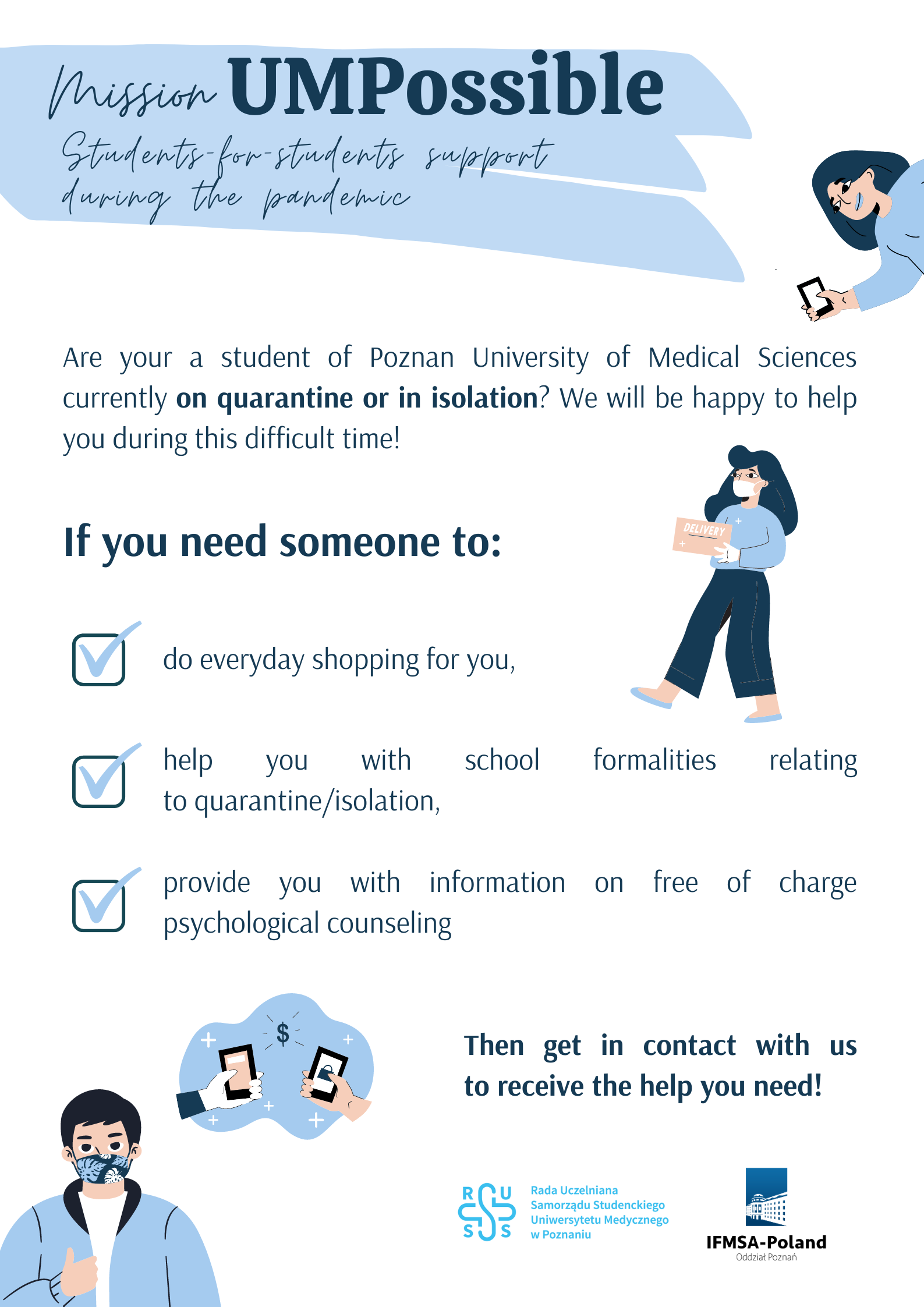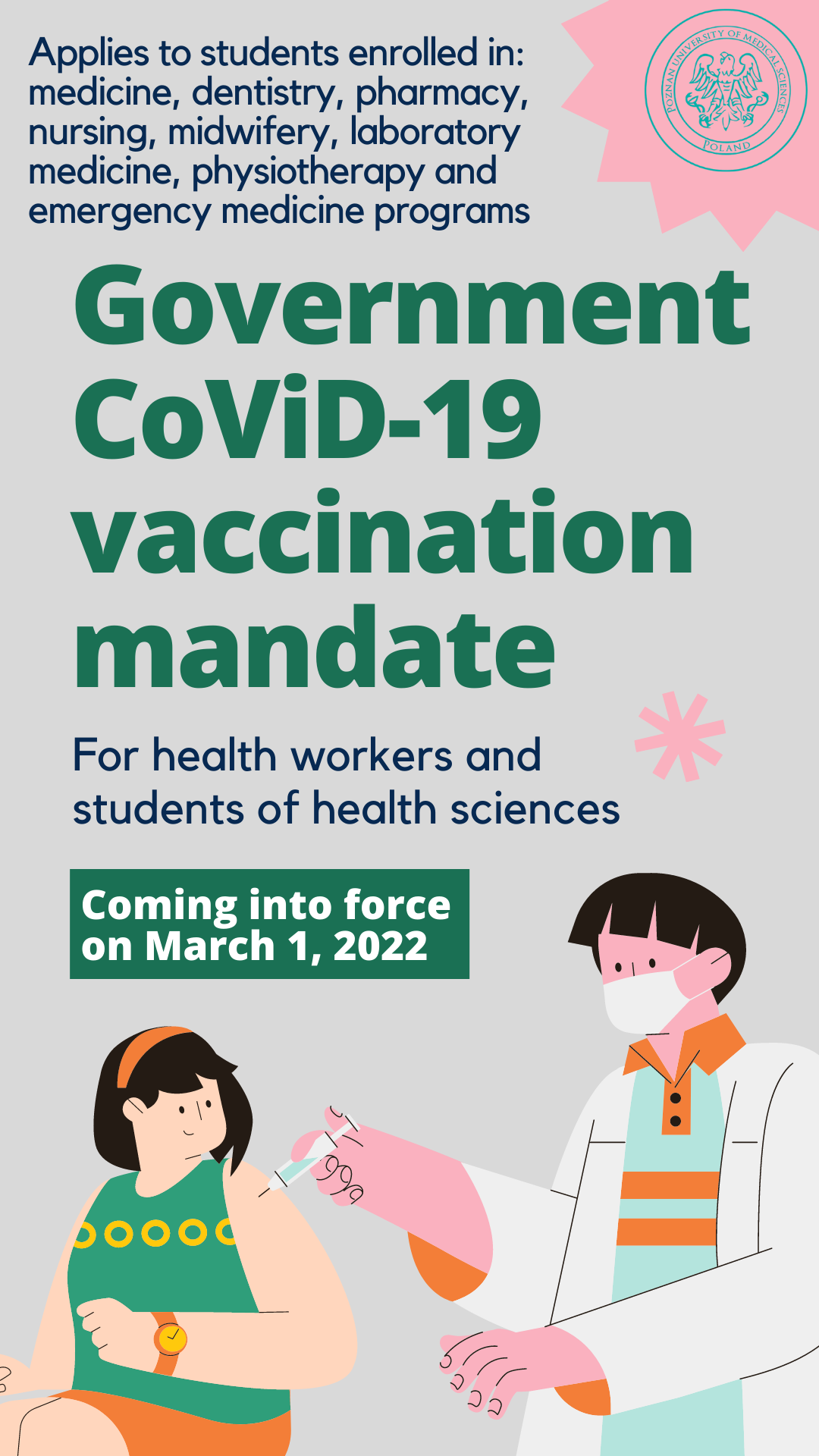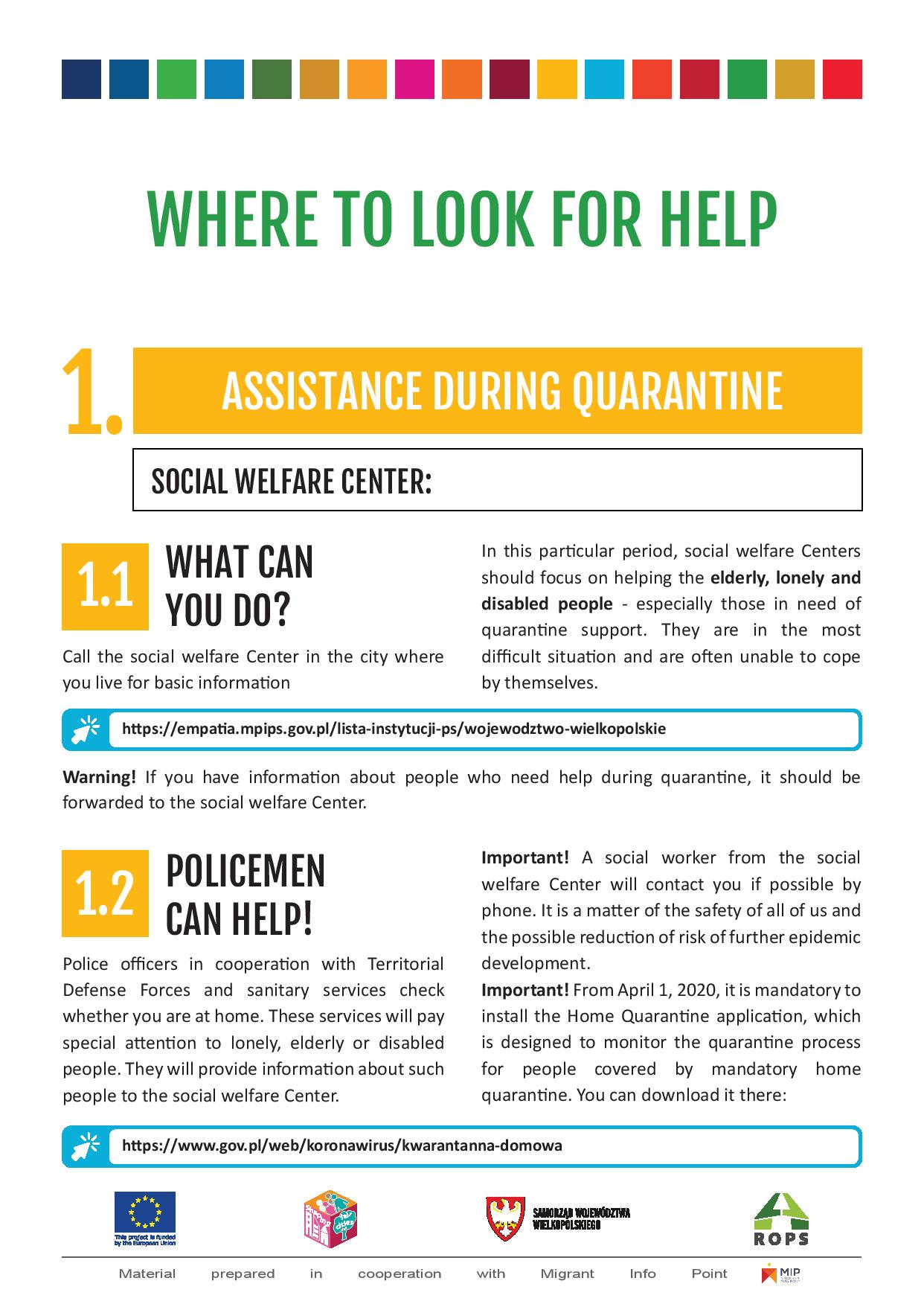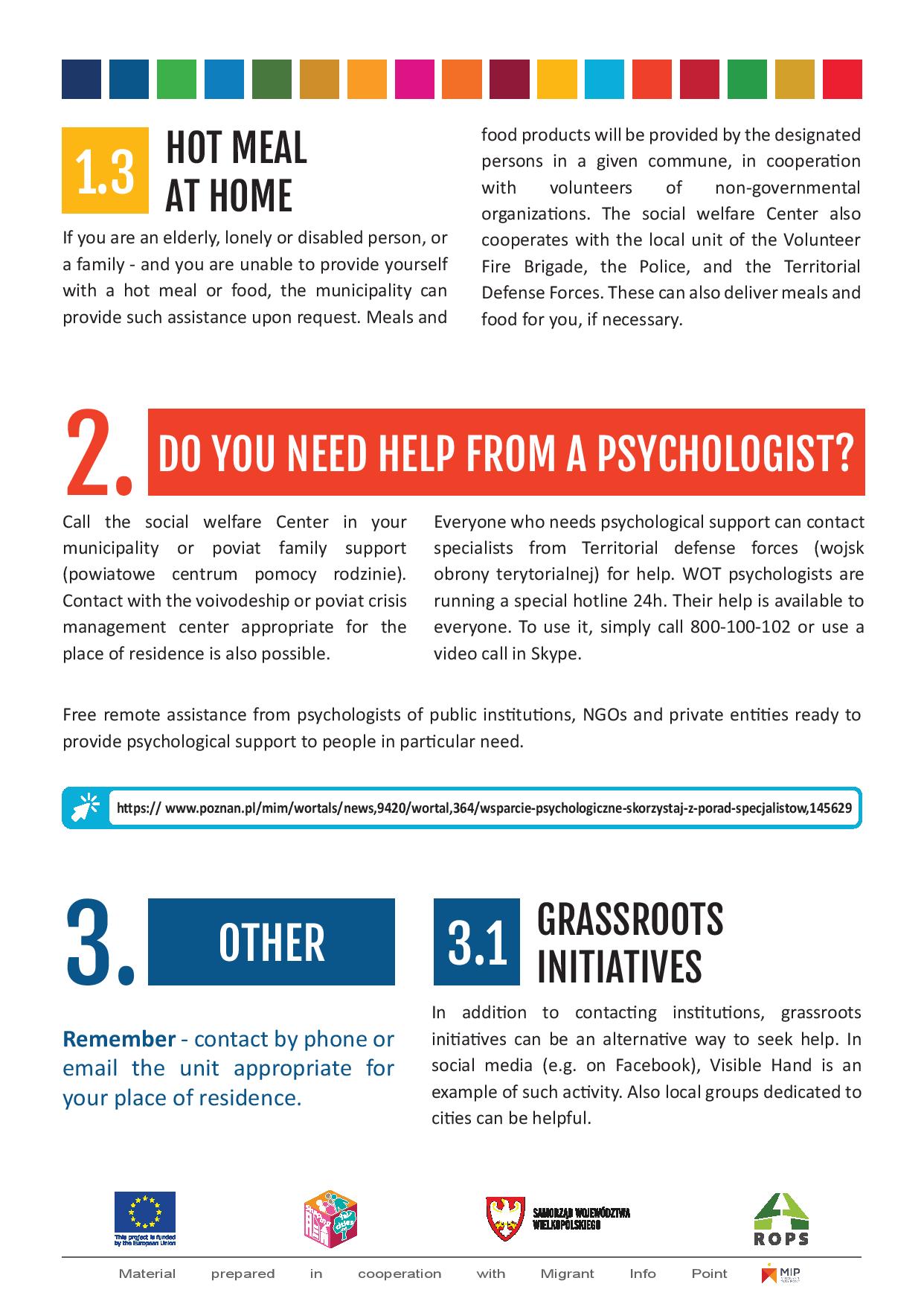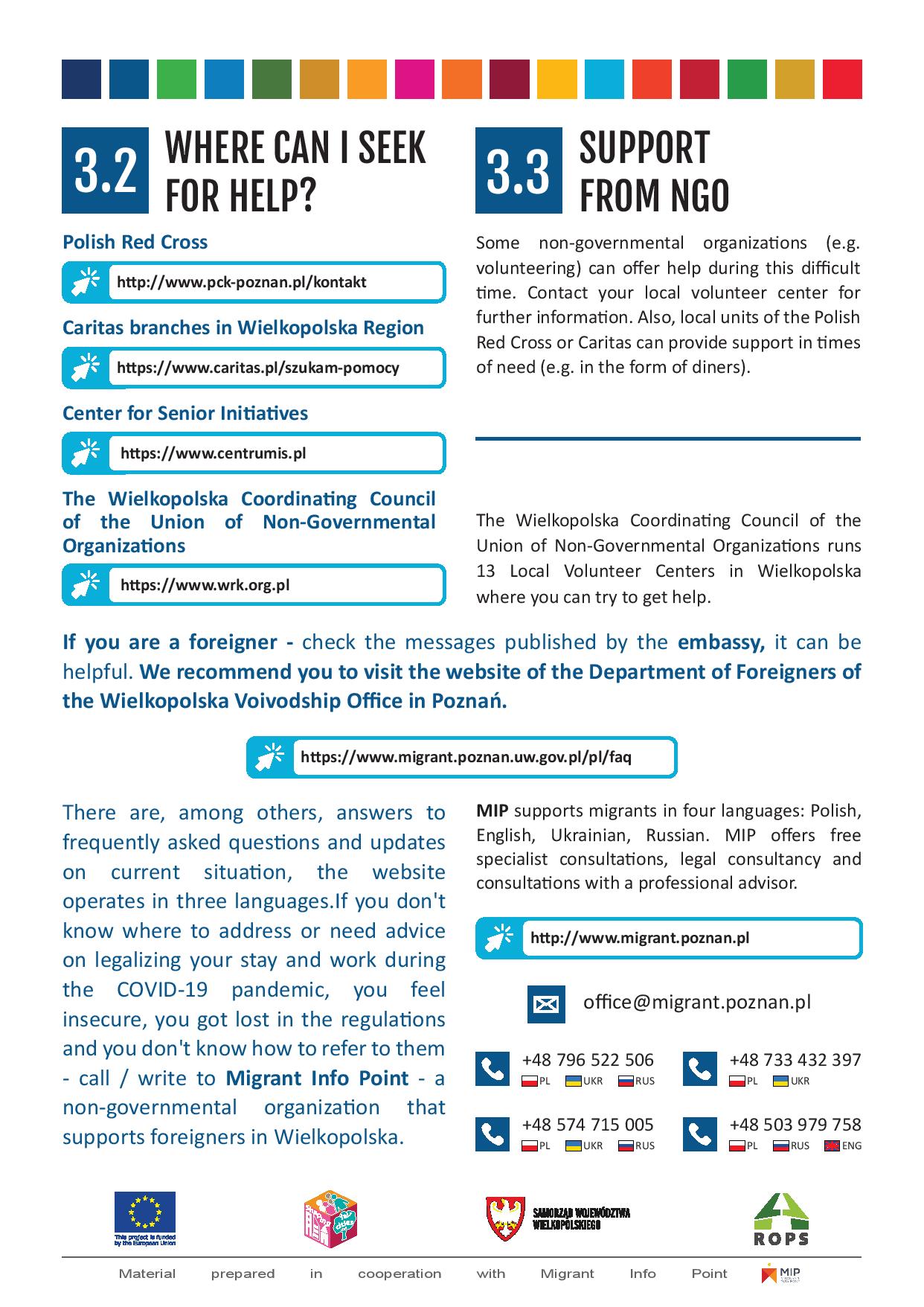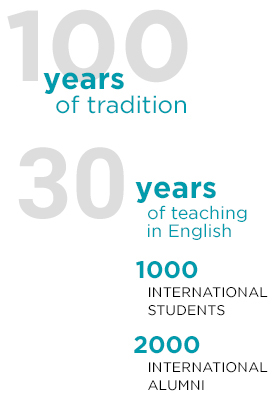
COVID-19 Information
Vital information and announcements applying to PUMS students in regards to the coronavirus pandemic:
Medical Assistance & Testing
If you are a PUMS students and have symptoms indicating the possibility of infection with SARS-CoV-2 virus you can take a free and fast PCR test in the University lab: ![]() find out how to schedule a free test.
find out how to schedule a free test.
In case of severe and sudden medical emergency contact the medical emergency service directly at 999 or 112.
In the case of students with symptoms indicating the possibility of infection with SARS-CoV-2 virus, it is recommended to test for COVID-19 at the University's Drive Thru point: http://uczelnia.ump.edu.pl/covid/ on the basis of a referral issued by a primary care physician. If it is not possible to test for COVID-19 in accordance with the above provisions, the student is asked to immediately provide information about this fact to the following address: This email address is being protected from spambots. You need JavaScript enabled to view it. in order to organize the test by the University.
Students living in dormitories are obliged to notify immediately the manager of the Dormitories Management Centre (0-507 434 364, This email address is being protected from spambots. You need JavaScript enabled to view it.) of a sick leave issued due to the positive test result of SARS-CoV-2 coronavirus and quarantine imposed on the student by the State Sanitary Inspection.
Student Vaccination Requirement
The Polish Minister of Health has introduced a CoViD-19 vaccination mandate for all students enrolled in study programs preparing for the professions of a doctor, dentist, pharmacist, nurse, midwife, laboratory diagnostician, physiotherapist and paramedic starting from March 1st, 2022.
![]() Letter from School Authorities announcing the vaccination requirement
Letter from School Authorities announcing the vaccination requirement
![]() Vaccination requirement info sheet
Vaccination requirement info sheet
![]() Find out how to register for your vaccination here
Find out how to register for your vaccination here
![]() How to have your vaccination from outside EU recognized at PUMS
How to have your vaccination from outside EU recognized at PUMS
Restrictions Imposed by the Polish Government
Immigration Documents
Please review information on this website for instructions on how to extend your legal stay in Poland or address your immigration issues with local government offices during the state of epidemic.
All visas, residence cards and work permits expiring during the current state of epidemic in Poland are automatically extended until 30 days after the official announcement of the end of the epidemic. This also applies to deadlines to submit applications and orders to leave the country: https://udsc.gov.pl/en/coronavirus-outbreak-special-solutions-for-foreigners/.
Where to Look for Help
Students who are in quarantine or isolation and need assistance with shopping and other necessities can contact EPSU and link up with volunteers who will be happy to help: This email address is being protected from spambots. You need JavaScript enabled to view it.. Alternatively, you can contact another similar initiative by RUSS and IFMSA as indicated in the poster below:
